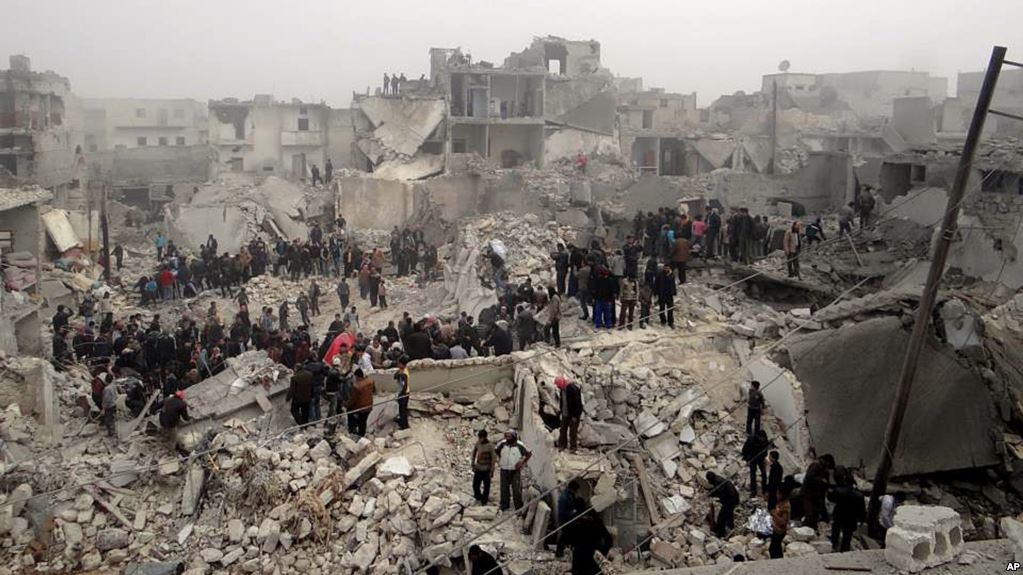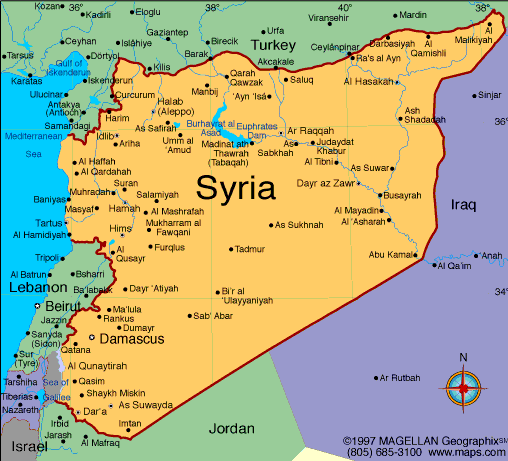Syrian airspace vulnerable
February 26, 2018 | Expert Insights

Russia has deployed two of its most advanced stealth jets to Syria as violence has escalated in the region. The latest development has caused concern in Israel and in Washington.
Can a mishap result in conflict between the three countries in Syrian airspace?
Background
Russia has supported the internationally recognized government of Syria since the beginning of the Syrian conflict in 2011: politically, with military aid, and since 30 September 2015 also through direct military involvement. The latter marked the first time since the end of the Cold War that Russia entered an armed conflict outside the borders of the former Soviet Union.
Since October 2011, Russia, as a permanent member of the UN Security Council, repeatedly vetoed Western-sponsored draft resolutions in the UN Security Council that demanded the resignation of Syrian president Bashar al-Assad and opened the possibility of U.N. sanctions against his government.
On 11 June 2013, President Vladimir Putin acknowledged that President Assad's not undertaking any "reform" had led to the current situation in Syria. He stated on Russian state media that: "Syria as a country was rife for some kind of change. And the government of Syria should have felt that in due time and should have undertaken some reform. Had they done that, what we're seeing in Syria today would have never happened."
On 26 June 2013, the Deputy Russian Foreign Minister said that the small Russian naval base at Tartus has been evacuated. Mikhail Bogdanov stated that: "Presently, the Russian Defense Ministry has not a single person stationed in Syria. The base does not have any strategic military importance". On 9 September 2013, responding to U.S. threats of strikes against Syria in response to use of chemical weapons in Syria, Russian Foreign Minister Sergey Lavrov issued a proposal intended to avert a U.S. attack, with provisions including Syria's placing its chemical weapons under international control and their subsequent destruction.
In 2017, Russia vetoed a US-sponsored UN resolution that would have extended an international inquiry into chemical weapons attacks in Syria. Eleven members voted in favor, two voted against the resolution. The two - including China - abstained from the vote to extend the mandate of the Joint Investigative Mechanism (JIM) by a year.

Analysis
In the recent weeks there has been increased military conflict in Syria. In February 2018, airstrikes over Ghouta resulted in the deaths of at least 300 people. Young children are among those who were killed, and reports have stated that hospitals seemed to be the target of the airstrikes. In addition, it was reported that hospitals ran out proper medication to treat the patients and doctors were forced to administer medication that was expired.
In addition, there has been increased tension between Israel and Iran over developments in Syria. Benjamin Netanyahu, the Prime Minister of Israel has accused Iran of trying to turn Syria into “one large missile factory”, with the aim of attacking Israel. In February, Israel carried out air strikes in Syria, and days later, an Israeli jet was shot down while returning from a raid on Iran-backed positions in Syria, leading to concerns that Syria would become the site for yet another proxy conflict.
Amid escalated violence, Russia has deployed two of its most advanced and sophisticated stealth jets in Syria. Experts have stated that this is a warning for Israel. This would also increase the level of danger for US troops who are currently in the region for combat.
"The addition of fifth-generation fighters into Syria would certainly not be in keeping with Russia's announced force drawdown," Pentagon spokesman Maj. Adrian Rankine-Galloway told CNN. The two jets (Su-57) are the most advanced jets in Moscow’s arsenal and are capable of stealth capabilities.
This makes the region more vulnerable and additionally tests the ties between Russia and Israel. The two countries have a “hotline” that they use when it comes to security coordination and they have earlier agreed not to come into conflict in Syrian airspace.
Vladimir Shamanov, the former commander of Russia’s airborne troops, who currently serves as head of the Russian Duma’s defense committee said, “As we helped the brotherly Syrian people, we tested over 200 new types of weapons.”
The US government recently voiced its concerns over Russia jets flying over Syrian airspace. Pentagon argued that this could result in a mishap where US government would be forced to shoot down a Russian jet in Syria.
Assessment
Our assessment is that Syria is currently one of the most unstable regions in the world with various factions at war with one another. As a result, the millions of civilians who still live there are highly vulnerable to violence. A single misadventure can result in a diplomatic crisis that will pit US and Israel against Russia. This would result in a conflict between two countries with the most advanced military technology and would result in the deaths of millions of civilians who remain trapped in the country.








Comments